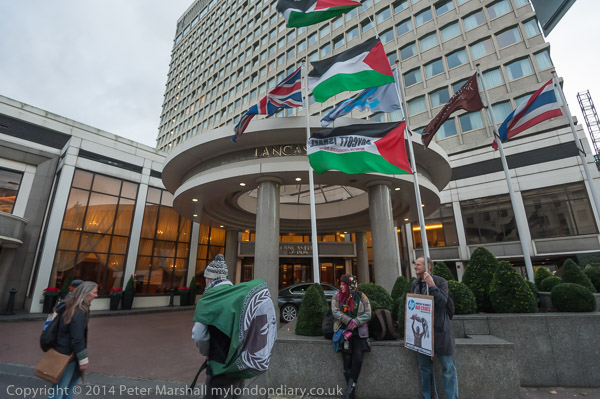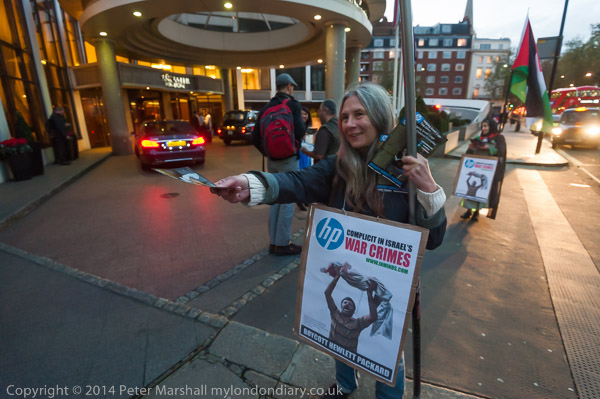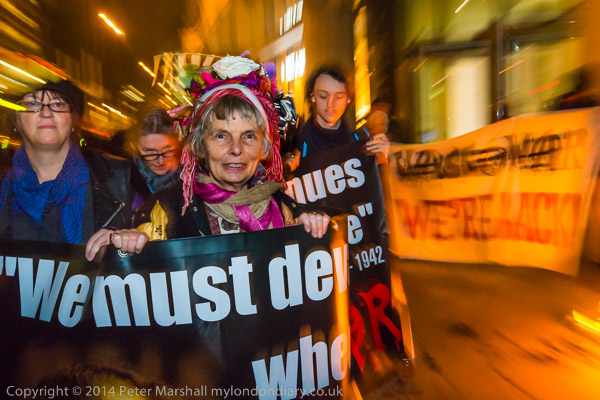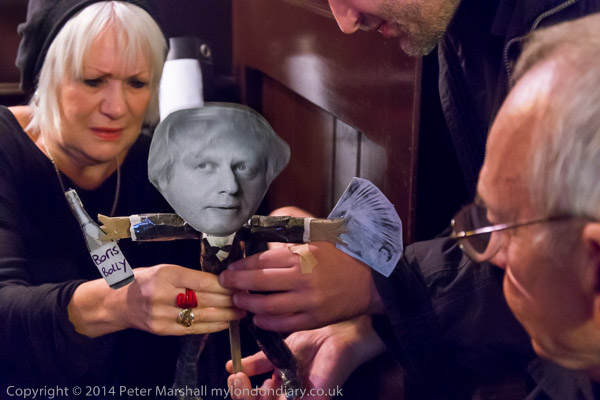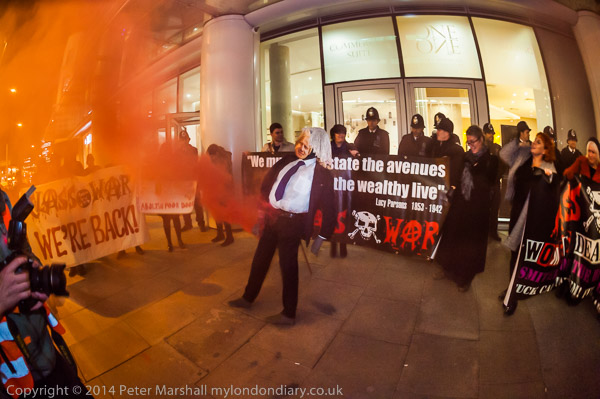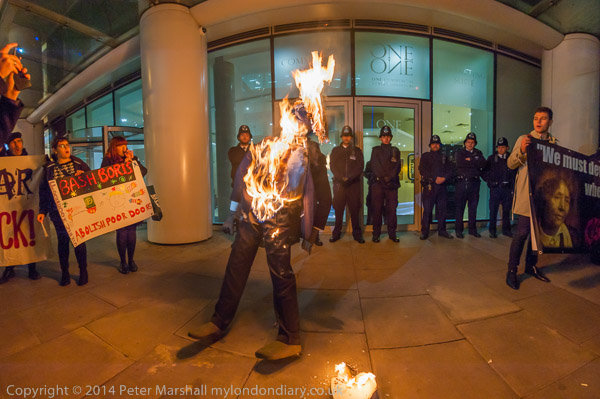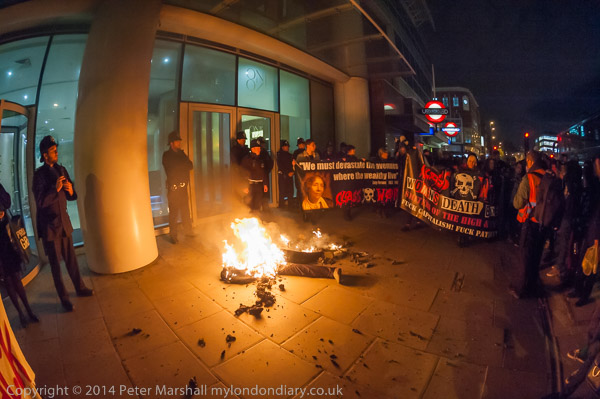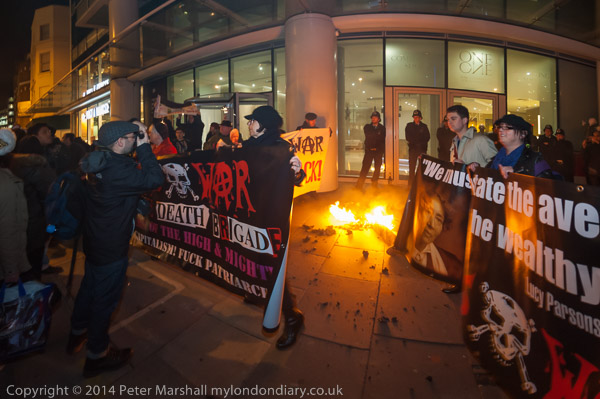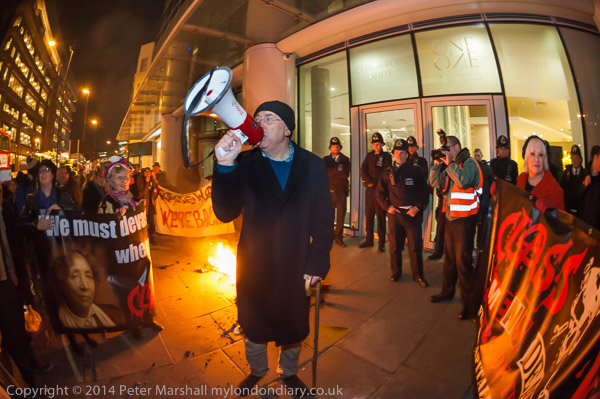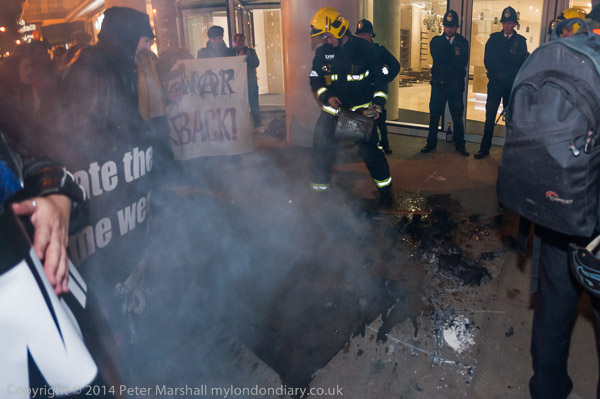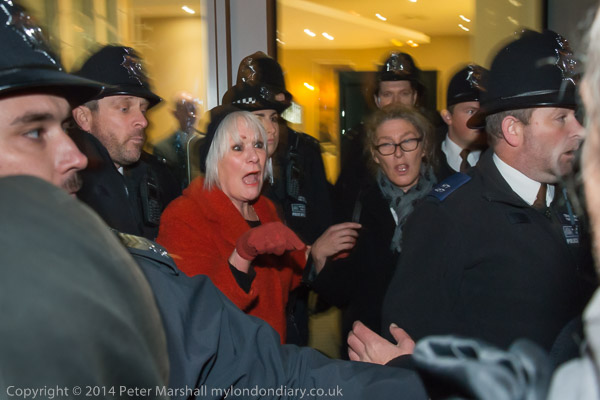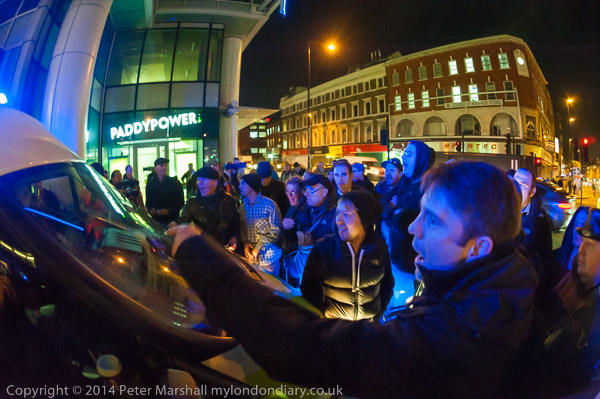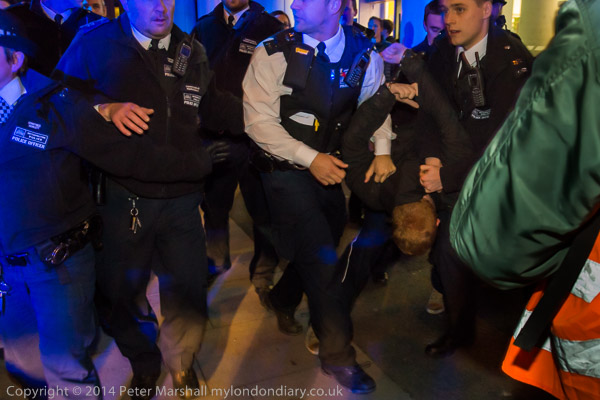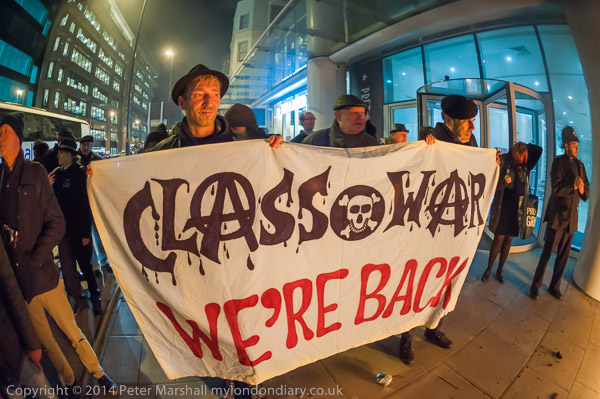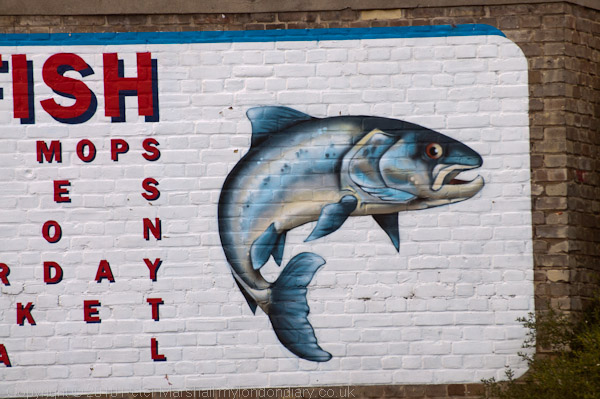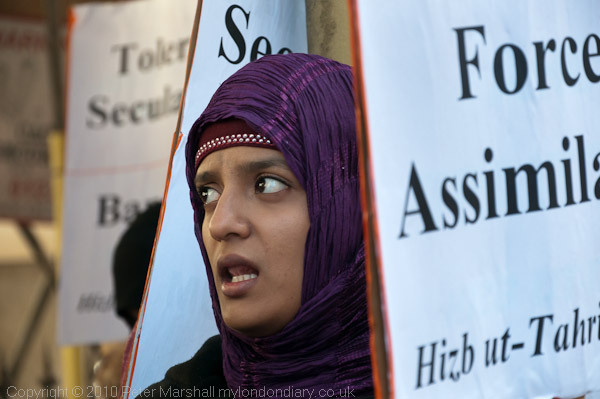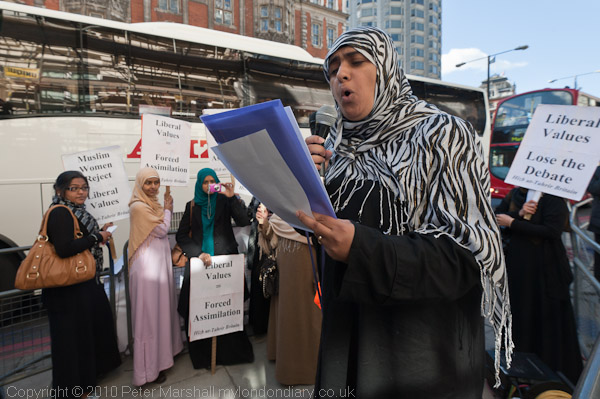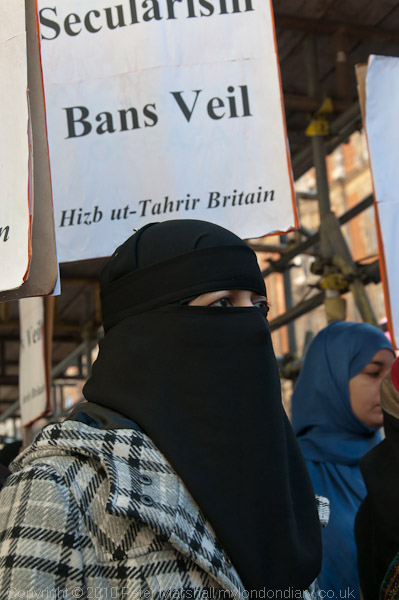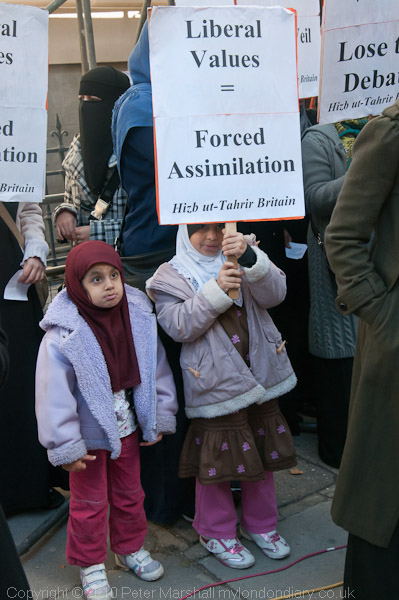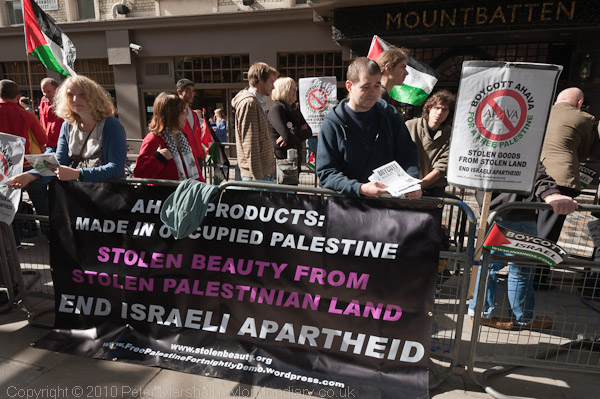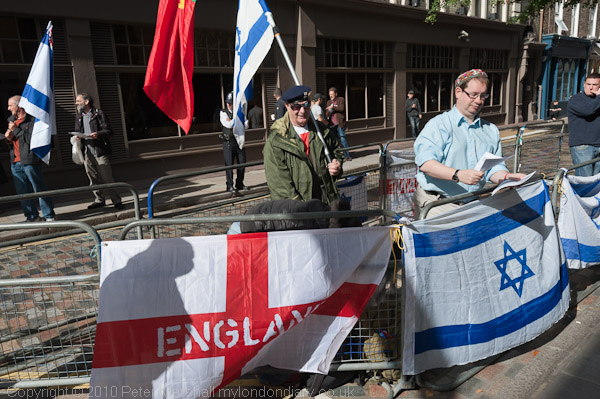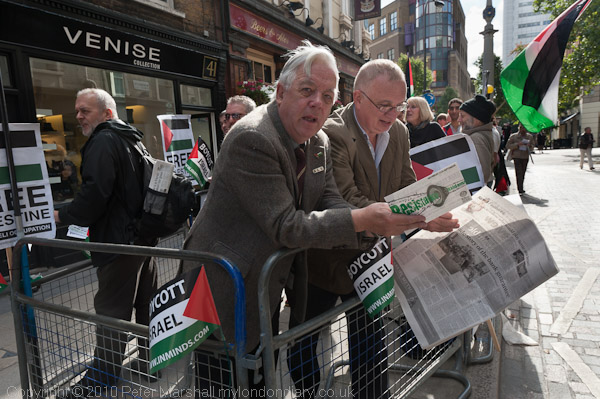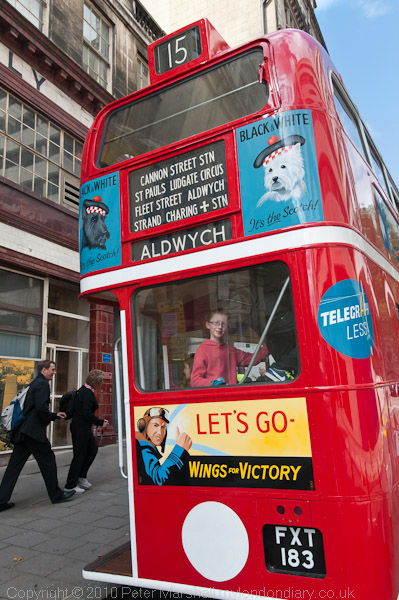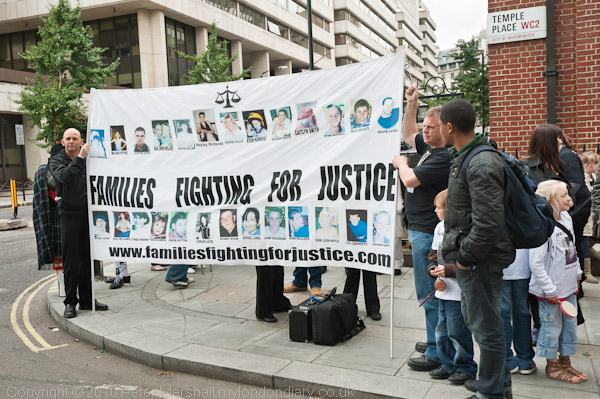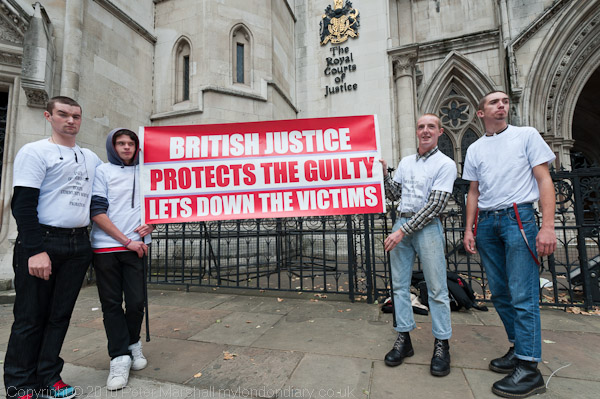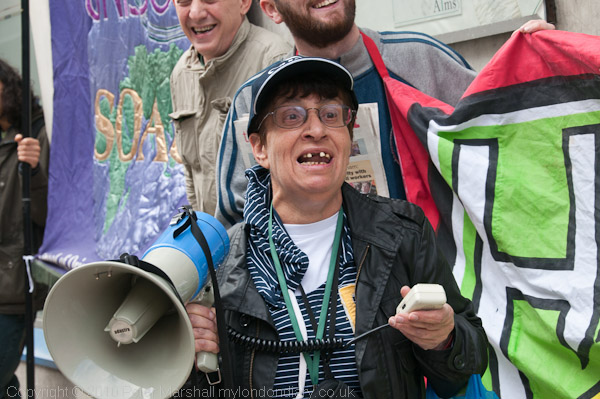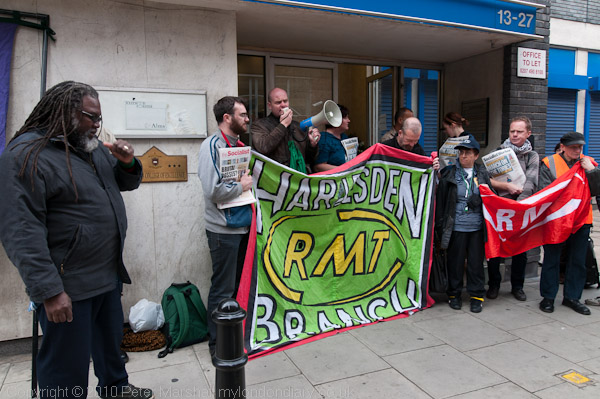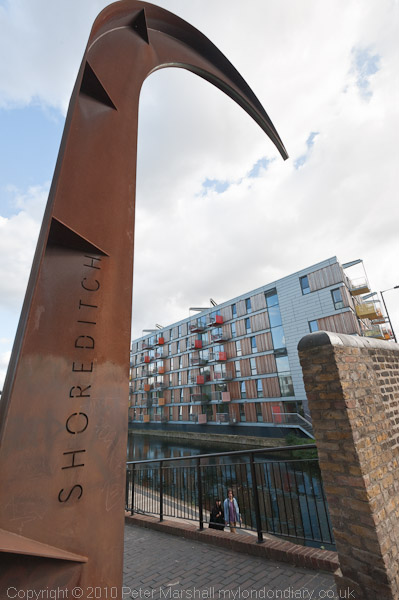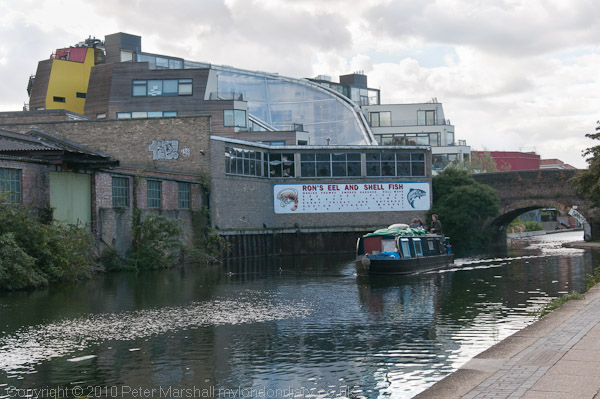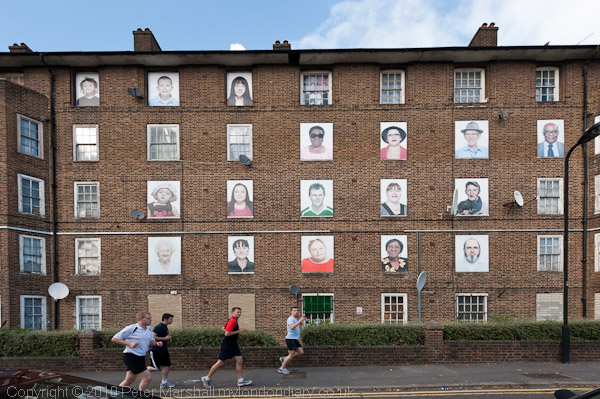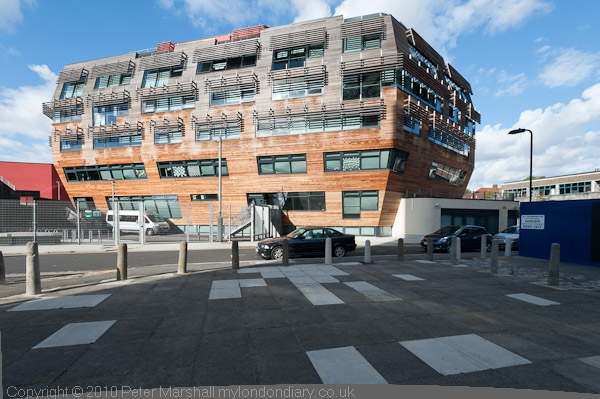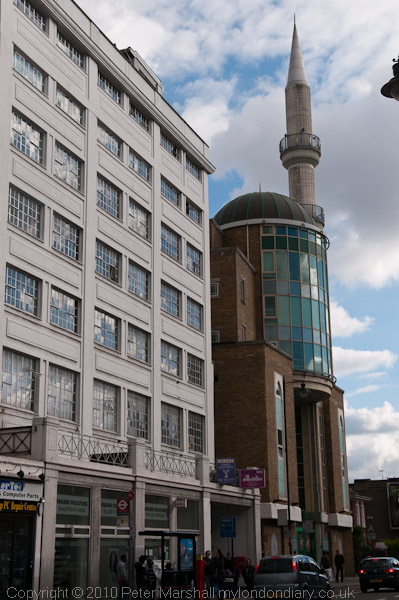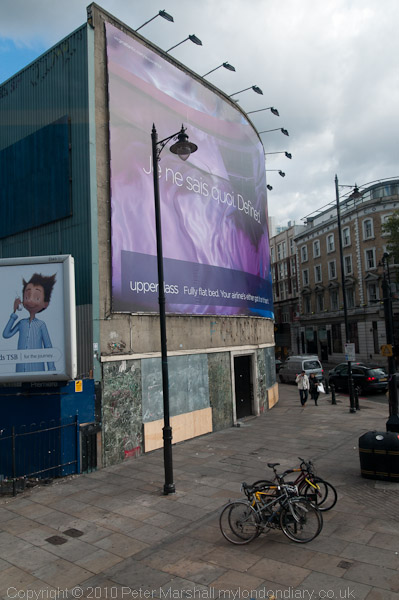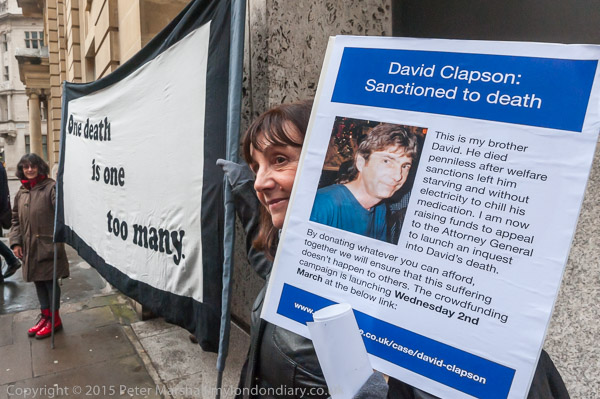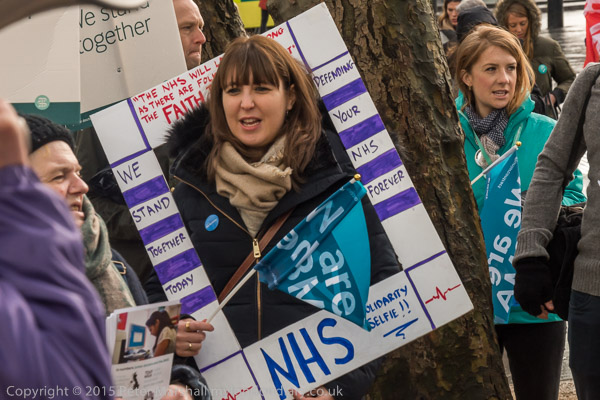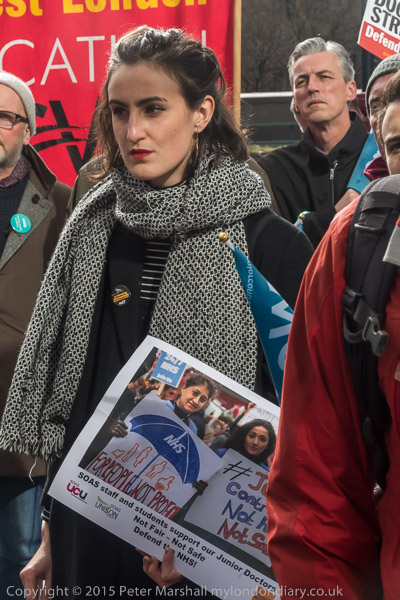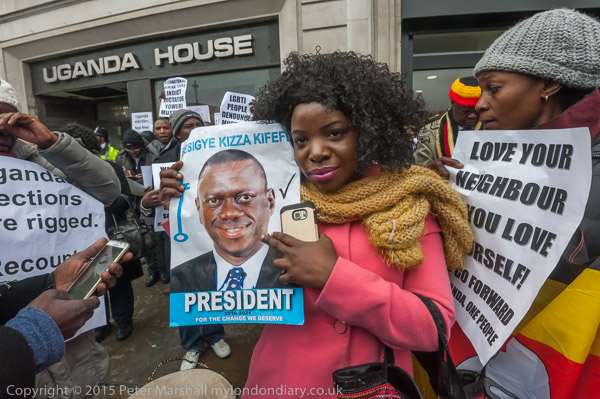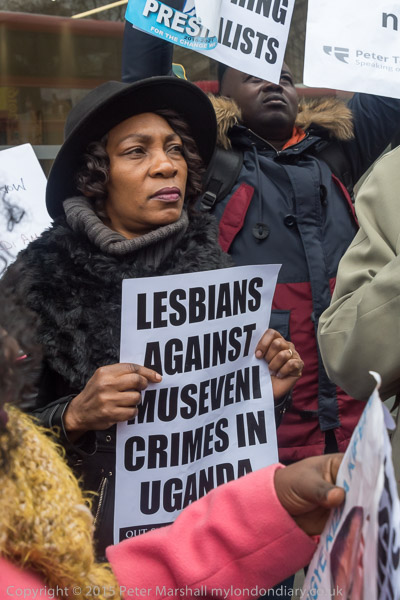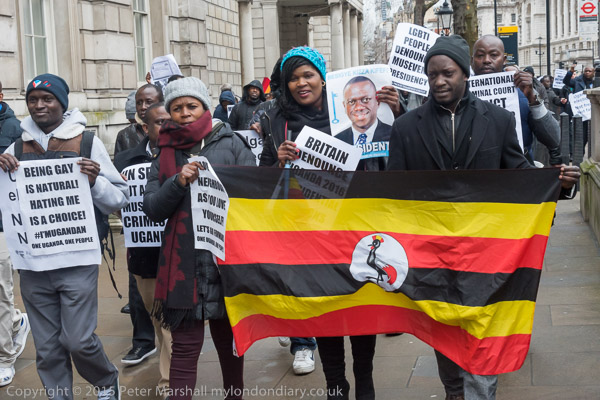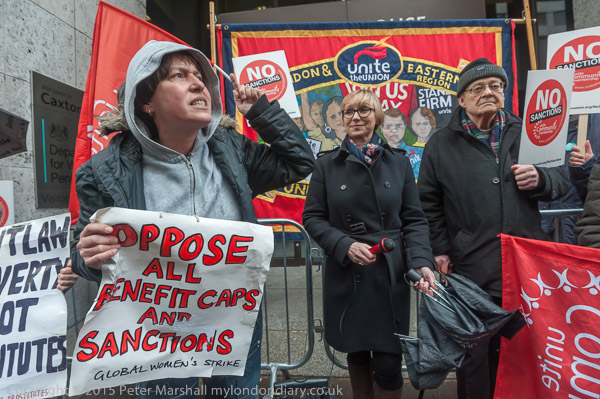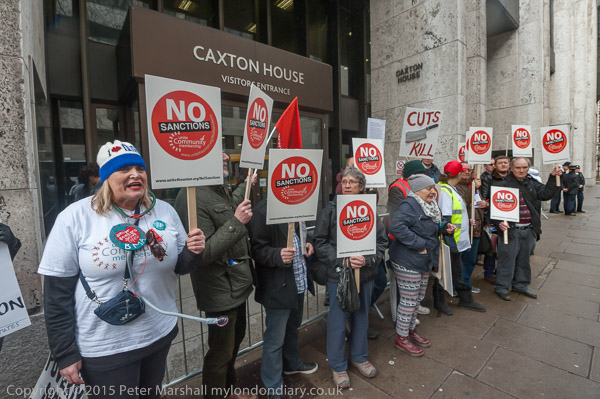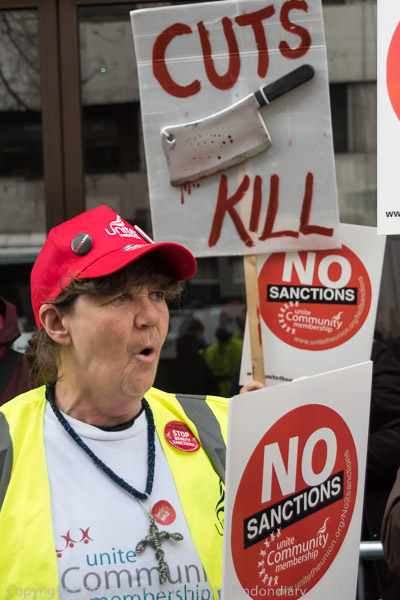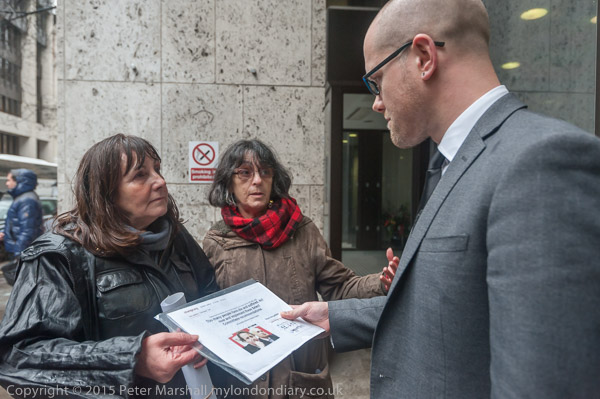Sandy Suspended – SOAS Shut Down: SOAS management in 2015 made plans to slash £6.5million from the budget for the following academic year by cutting 184 courses and making staff redundant. The plans would also have seen outsourced staff given even worse contracts by the private companies employing them.
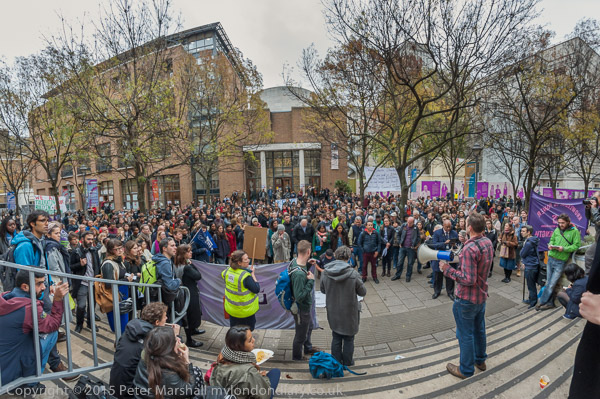
Management, headed by interim director Baroness Valerie Amos, a former adviser to Tony Blair were also attempting to bring the student union to implement the government’s divisive ‘prevent strategy’ and to stop the democratically agreed academic boycott of Israel and the appointment of a liberation co-President of the Students Union.
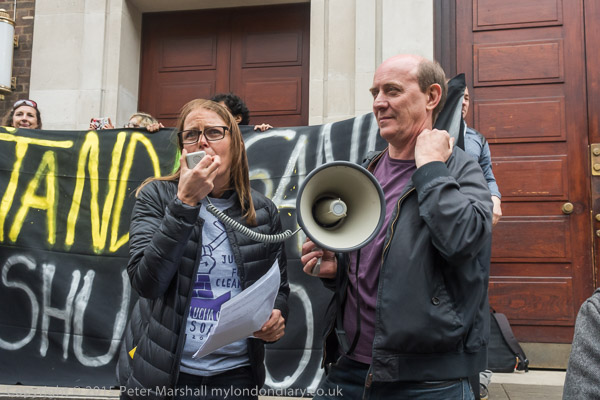
Students responded angrily after a leaked document revealed the extent of the cuts and began an occupation of the Brunei Suite on the SOAS site in early October 2015. The suite was not a part of the university’s educational programme, but a money-making business rented out for commercial uses and the students also wanted it to be used by and for the SOAS community.
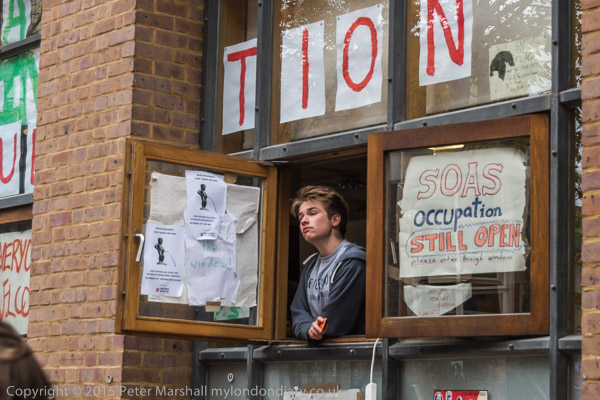
During the occupation they used the suite for a number of talks, discussions and various creative events. Management responded by spending several thousand pounds a day on extra security – and when I visited SOAS the only way to enter was through windows and too athletic for me.
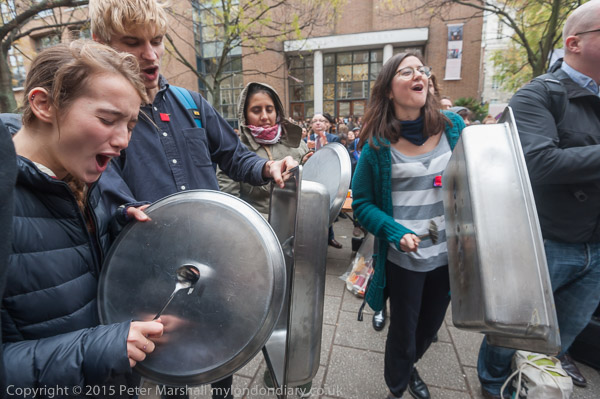
Amos accused the students and staff supporting the occupation of bullying and intimidating behaviour immediately before she then tried to intimidate them by suspending Unison branch secretary Sandy Nicoll over a totally untrue allegation that he had allowed students to occupy the suite.
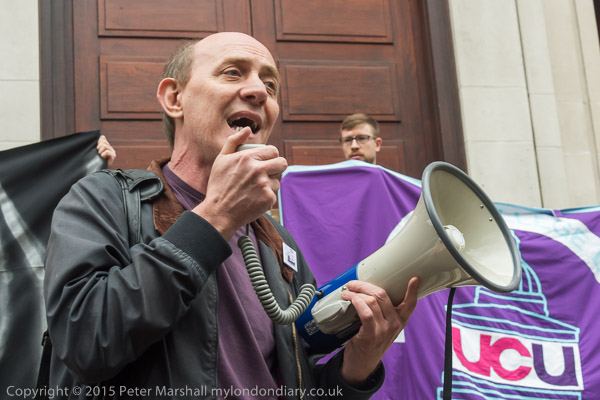
The suspension brought an immediate angry response from staff and students at the university who called for a day of action on 29th October. Many teaching and administrative staff refused to cross a picket line and management locked the doors, cancelling lectures in the main building for the day while a long and spirited protest took place outside.
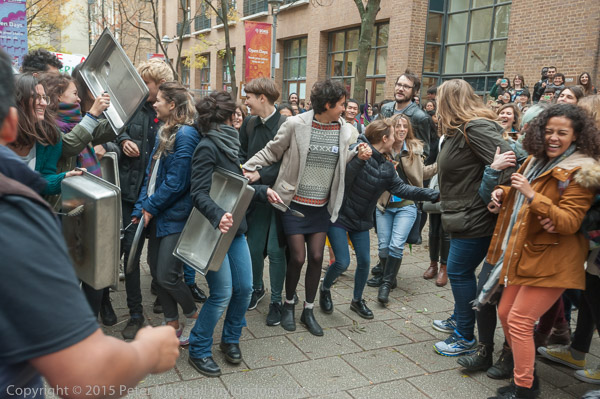
Around 60 Unison members and 20 from the UCU came outin an uofficial action to support him, along with many of the students including student union leaders. Messages of support for Sandy came from colleges and trade unions around the country. A long series of speakers also came to give their support in person.
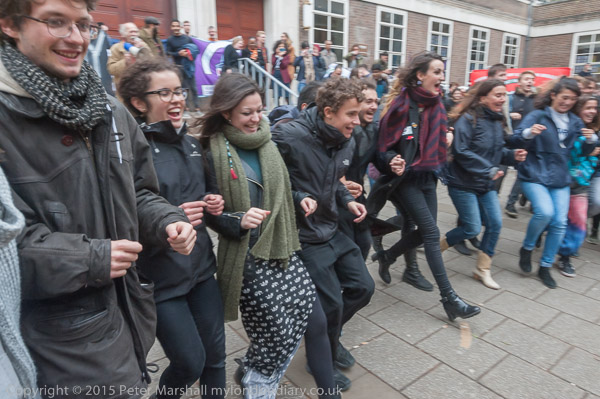
There was tremendous warm support when Sandy Nicoll himself came up to speak, with people shouting out, cheering and clapping in a truly rapturous welcome. Sandy was suspended on an entirely false charge and there seems to be little chance of the university getting back to normal business until he is reinstated.
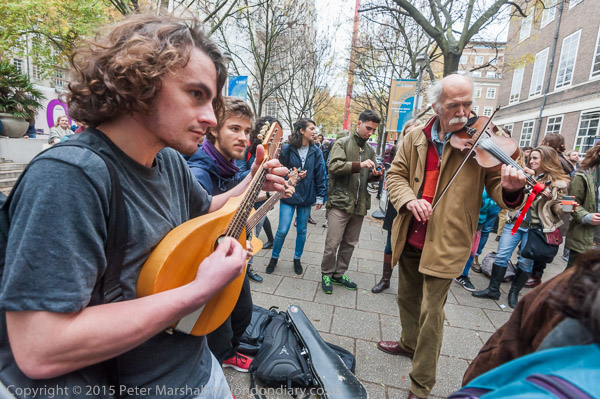
At the end of the rally, many of those present took part in the ‘Strikey-Strikey’ dance, a version of the hokey-cokey in a large circle where at the of each verse everyone runs like made into the centre. Afterwards, as I was leaving, people set off smoke flares and paraded with banners and a violin and drums.
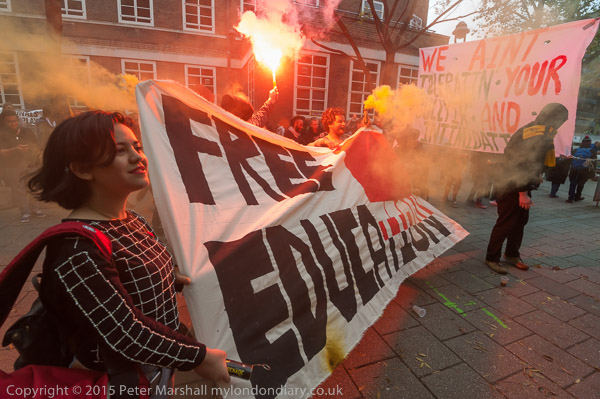
Early in November Sandy was reinstated following a number of protests and unofficial walkouts. The huge solidarity he got from workers at the university was a response to his years of support for workers at SOAS and elsewhere, particularly in the long and eventually successful Justice for Cleaners campaign to get them brought back into direct employment.
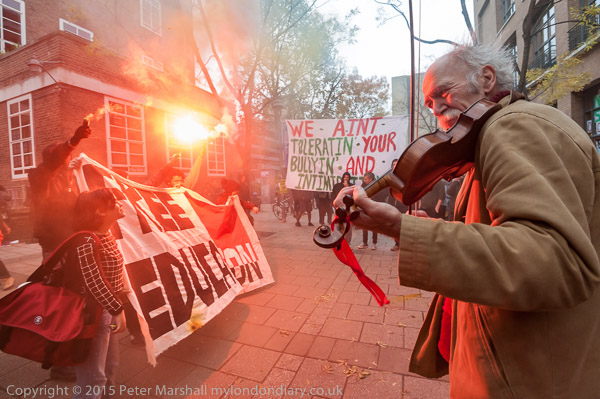
I was pleased when one of my pictures from this protest of Ed Emery playing his fiddle was buried as a part of the SOAS centenary time capsule in 2016. I was there on the day it was buried but for a protest by the cleaners and left to do other things before the burial.
More pictures at SOAS Shut Down after Sandy suspended.
